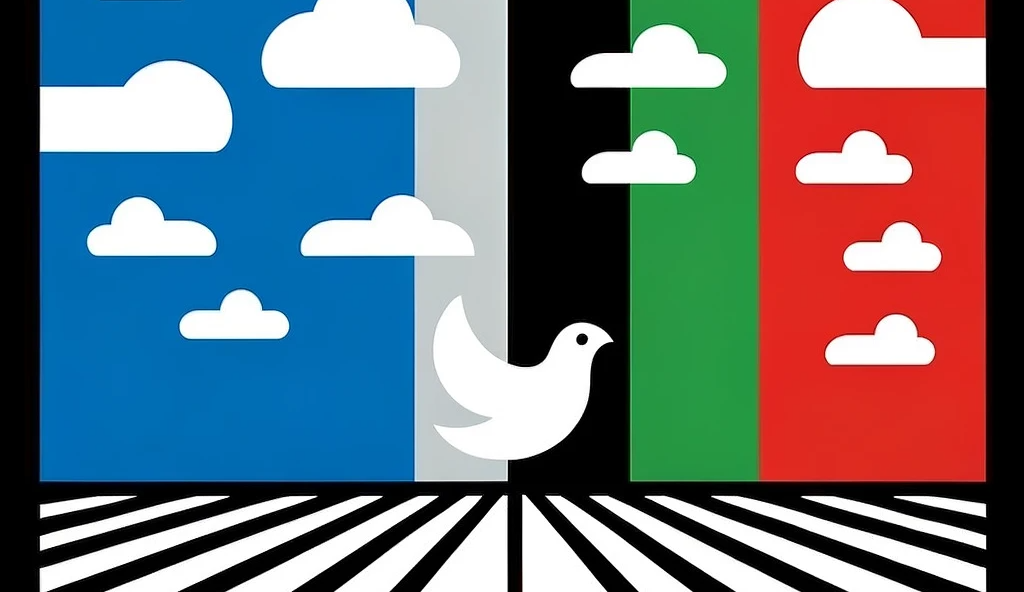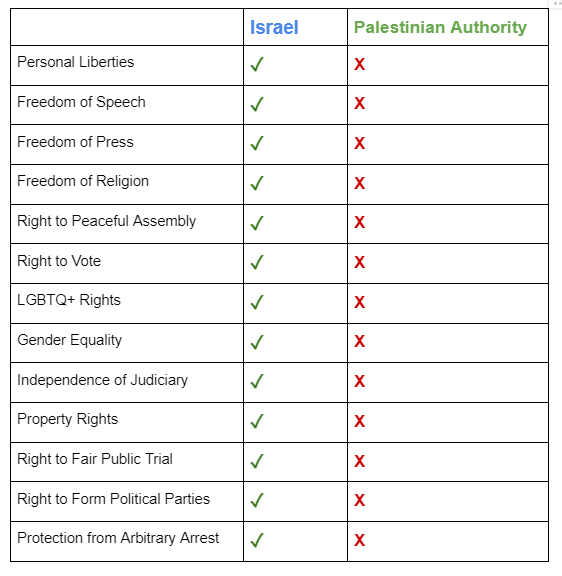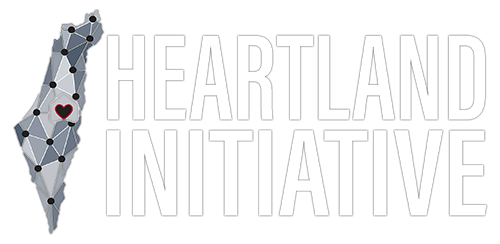
Cutting Through Illusions: How the Two-State Solution Diminishes Freedoms, Not Conflicts
By Gedaliah Blum, Senior Partner Heartland Initiative
The recent Gaza conflict has reignited discussions about the future of the Middle East, with many advocating for a two-state solution. However, this approach overlooks crucial issues of regional stability, freedom, and democracy. Israel, as the only Jewish state surrounded by 22 Arab nations, stands not just as a country but as a symbol of democratic resilience in a volatile region. The proposition to slice away half of this bastion of liberty is not only impractical but also undoubtedly poised to foster greater instability.
Expanding the Boundaries of Freedom
In this context, a crucial question arises for all who value freedom and the rule of law: Why support measures that restrict the domain of a free and lawful society? Advocates of liberalism and freedom should logically argue for the expansion of Israel’s borders. In a region where democratic values are scarce, reducing the territory of the Middle East’s only democratic state contradicts the principles of freedom and self-determination.
This argument is reinforced when considering the rights of individuals, both Arabs and Jews. In territories under Arab rule, freedoms and democratic rights often taken for granted in liberal societies are absent or severely restricted. Therefore, expanding the territory of a democratic society like Israel is vital for geopolitical stability and extending democracy and individual freedoms.
Navigating Cultural and Societal Evolution
The journey from entrenched authoritarian cultures to democracies is complex and challenging. In societies where authoritarian rule has long been the norm, the adoption of democratic rights and freedoms is not a simple or automatic process. Such societies often need to undergo a significant cultural shift, especially when they have a history of glorifying violence or endorsing harmful practices like “honor killings.” This shift necessitates a deep-seated change in both mindset and societal norms, fostering an environment that vehemently opposes these destructive ideologies and instead champions human dignity and mutual respect.
Choosing a Future: Authoritarianism or Democracy
In the Israeli-Palestinian context, this cultural transition becomes even more critical. Palestinians are at a crossroads, faced with a decision that will shape their future. With the majority of the surrounding Arab states governed by authoritarian regimes, they have the option to either align with these states or to choose a radically different path by embracing the democratic values upheld by Israel. This decision transcends mere political preferences; it represents a pivotal moment in cultural and societal evolution. It is about deciding whether to continue in a cycle characterized by authoritarian control and violence or to step forward into a realm where democracy, freedom, and individual rights are not only respected but are foundational pillars of society.
The following table illustrates the stark differences in personal liberties between Israel and the Palestinian Authority, underscoring the importance of expanding the domain where democratic rights and freedoms are upheld.

Charting a New Course
In the aftermath of the Gaza conflict, a redefinition of peace in the Middle East is necessary. True peace will emerge not from the division of land but from the expansion of democratic ideals and freedoms. This vision goes beyond mere coexistence; it’s about building a region where liberty, justice, and individual rights are accessible to all.
In conclusion, the Israeli-Palestinian conflict discourse requires a shift towards expanding the scope of freedom and democracy. The path forward should not involve diminishing the area where these values flourish but expanding it. Our goal is a Middle East where the principles of liberal democracy are not just preserved but are on the rise, benefiting every individual in the region.
About the Author:
Gedaliah Blum is the co-founder of the Heartland Initiative, a platform enhancing global engagement with Israel, and Dapei Katom, which supports family-run businesses in Israel’s heartland. His work emphasizes the importance of public diplomacy and economic empowerment in the region. With extensive experience in both advocacy and business, Gedaliah offers a unique perspective on the complexities of the situation in the region.

